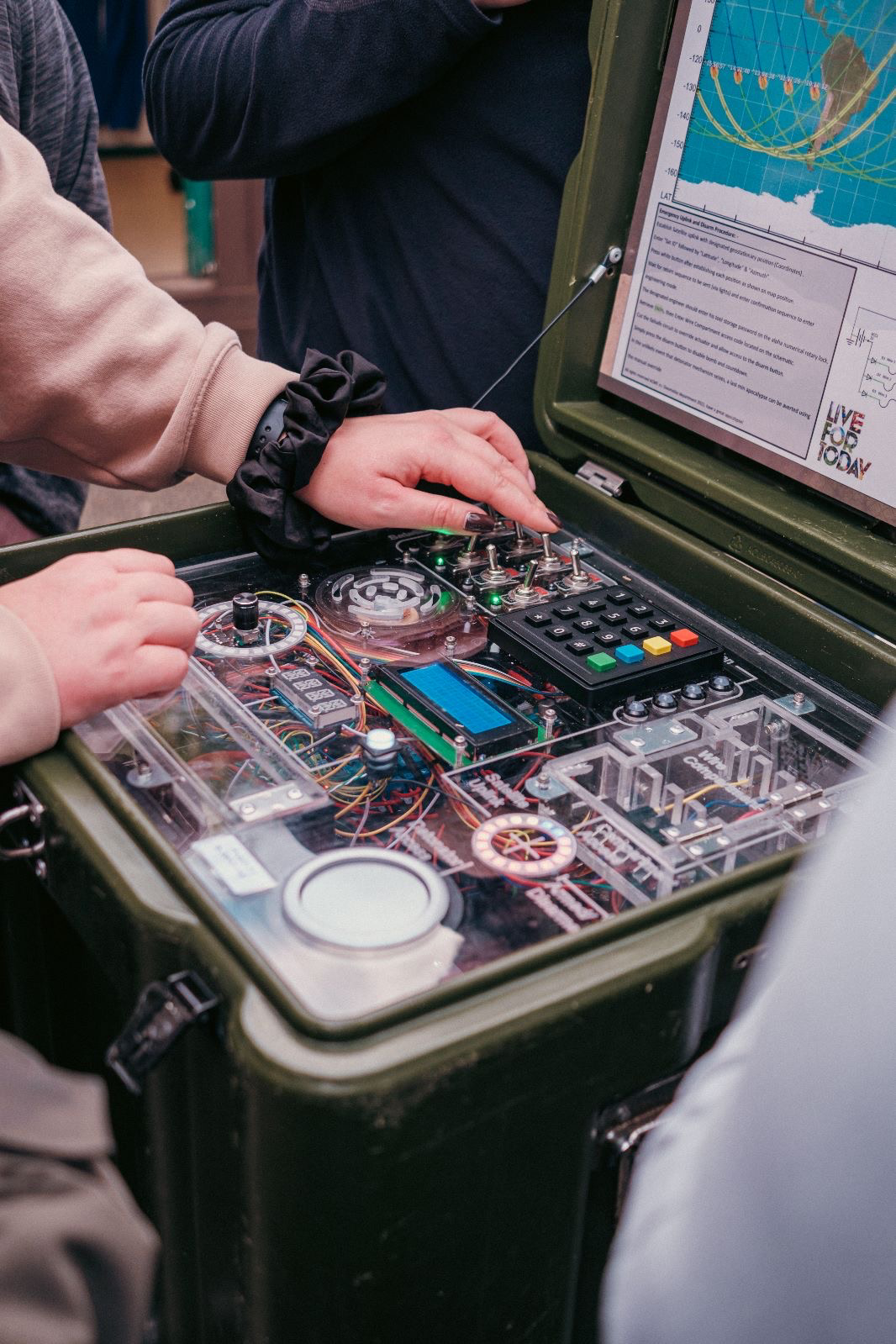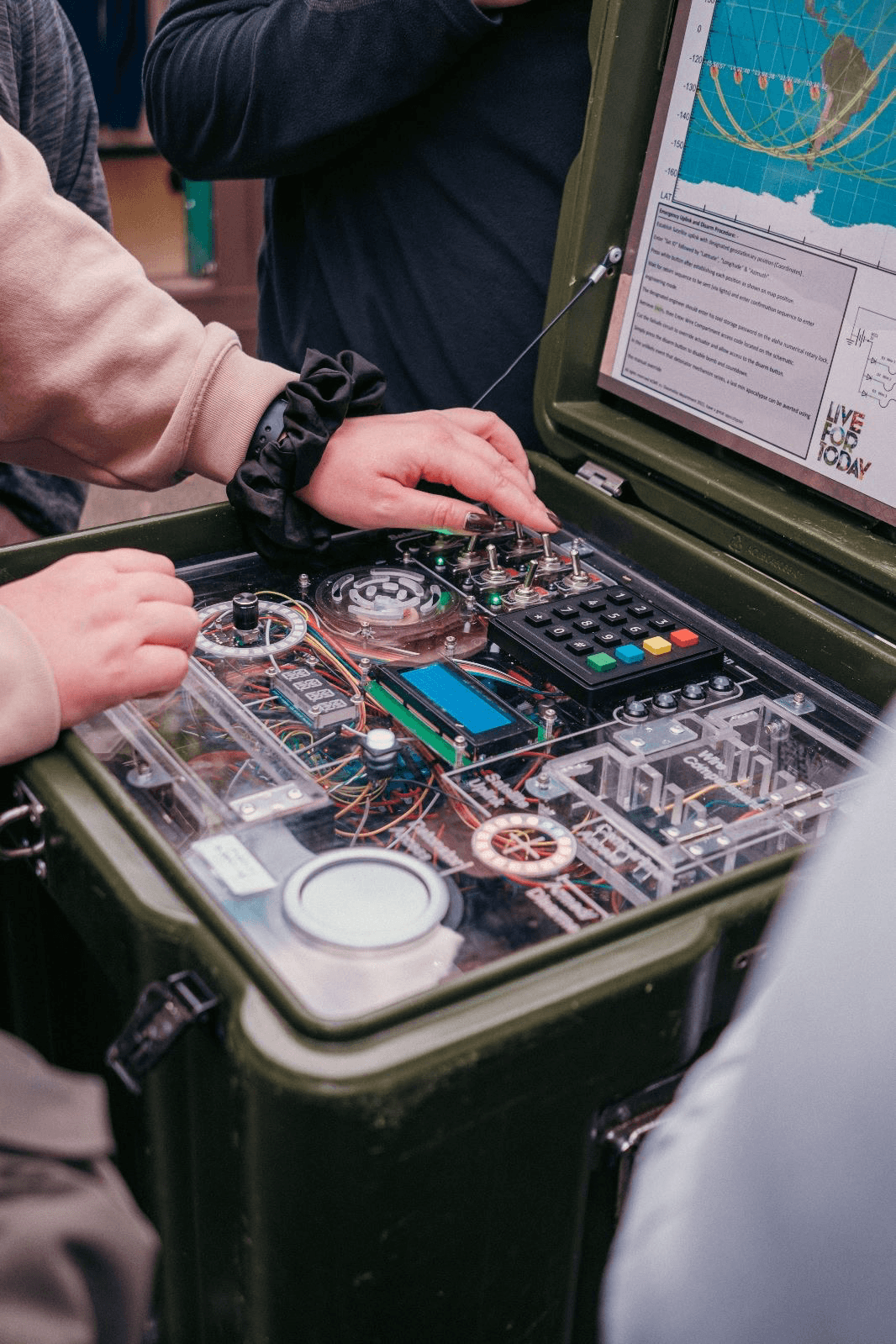Most people think the hardest part of starting an experience business is finding “the perfect idea.”
Truth is, the idea is rarely the problem.
The real challenge is figuring out whether that idea can actually become a business — one people will book, talk about, share, and repeat.
I’ve been building experience-based products for over 13 years now, from one zorb in a field to multi-site adventure centres, escape rooms, immersive challenges, climbing centres, corporate events, and pop-up experiences.
Looking back, something became clear:
The ideas that succeed all tick the same boxes. The ideas that fail… don’t.
So here’s the tool I wish I had at the start of my journey: a simple scorecard to instantly test whether your experience idea is worth building.

The 6-Point Experience Idea Scorecard
Score each category 1–5. Add them up at the end.
1) WOW Factor (1–5)
Experiences live and die on emotional reaction.
Ask yourself:
Does this idea make people instantly curious?
Does it create anticipation?
Is it something people would brag about or share online?
Would someone tell a friend about it the moment they hear it?
In the experience economy, perceived excitement is everything. That’s why escape rooms, axe-throwing, immersive chases, neon workshops, and themed trails became hits — they’re instantly appealing.
If your idea doesn’t generate “I need to try this,” it won’t spread.
Quick tip: Name the “moment of magic” — the exact beat where guests gasp, laugh, or cheer. If you can’t name it, you probably don’t have it yet.
2) Deliverability (1–5)
A clever concept falls apart if it’s hard to run well.
Ask:
How simple is it to operate day-to-day?
Does it require complex tech or specialist staff?
Can you ensure safety and consistency?
Does it demand constant supervision?
Can a normal team member deliver it with training?
In the experience world, simple to deliver = scalable.
You want experiences that are:
repeatable
easy to train
easy to reset
reliable
safe
consistent
If your idea relies on one charismatic founder, a high-risk setup, or complicated tech, it becomes fragile. If you can’t deliver it well every time, customers will feel it.
Quick tip: Write a one-page run-book. If a competent newbie can’t run the experience from that sheet, it’s too complex.
3) Scalability (1–5)
The best experience ideas grow with you.
Ask:
Could this run at multiple venues?
Could hotels, estates, corporates, festivals, or events host it?
Can it be cloned, licensed, or franchised?
Could you create seasonal or themed versions?
Can someone else deliver it without you being there?
A great sign of scalability: it still works when you’re not running it.
If the whole business rests on your shoulders, it won’t grow — it will drain you.
Quick tip: Aim for a “kit-in-a-box” model — everything needed to deliver fits into labelled tubs with a checklist.
4) Profit Per Head (1–5)
Passion is great. Profit is essential.
Ask:
Can this reasonably generate £30–£60 per head?
Can it reach £300–£1,500 group bookings?
Are the costs low enough to make margins healthy?
Can it run more than once per day?
Can you bundle, upsell, or add add-ons?
Most founders underestimate this and end up with amazing experiences that lose money.
A strong idea balances high perceived value with low operational cost
If the numbers don’t work, enthusiasm won’t save it.
Quick tip: Target 70%+ gross margin on the core experience. Use upsells (photos, merch, premium slots, food and beverage) to lift contribution without adding staff hours.
5) Story + Brandability (1–5)
Every successful experience has a hook — a story, theme, or identity that sticks.
Ask:
Is there a clear narrative or emotional promise?
Does the experience have a name that sells itself?
Can you create a theme around it?
Does it photograph well?
Can it be marketed easily?
This is why things like:
The Cryptic Chase
Your Day, Your Adventure
Escape the Island
Crack the Enigma
Last Bomb Standing
Swinton Saboteurs
…work so well at Live For Today. They’re not just activities — they’re stories people step into.
If your idea is hard to explain, it will be hard to sell.
Quick tip: Write the 10-word pitch and the Instagram caption. If both aren’t compelling, refine the hook.
6) Setup & Venue Flexibility (1–5)
The experience industry rewards ideas that can run anywhere.
Ask:
Does this require a fixed space?
Can it be delivered indoors and outdoors?
Could it work at hotels, estates, offices, or conference rooms?
Is it mobile or portable?
How long does setup/reset take?
The more flexible it is, the more opportunities you unlock. This is where corporate events, hotels, estates, weddings, retreats, and pop-ups come in — exactly the market 53° helps founders tap into.
If your idea can fit in a van, in a hall, in a woodland, at a conference, or inside a castle… It’s gold.
Quick tip: Design for a 30-minute setup and a 15-minute reset. If you can’t hit that, simplify.
The Hidden Benefit: It Stops You Overthinking
Most people spend months stuck in idea paralysis. This scorecard gives you the confidence to decide quickly:
It stops you from becoming emotionally attached to ideas that won’t scale — and helps you spot the ones that will.
If you’re dreaming of launching an experience business — whether it’s outdoors, indoors, corporate, creative, mobile, immersive, or something completely new — use this scorecard.
Score your top ideas.
Pick the strongest.
Start small.
Test fast.
Refine.
Grow.
Every successful experience business started with a simple idea that scored well on the things that matter.




